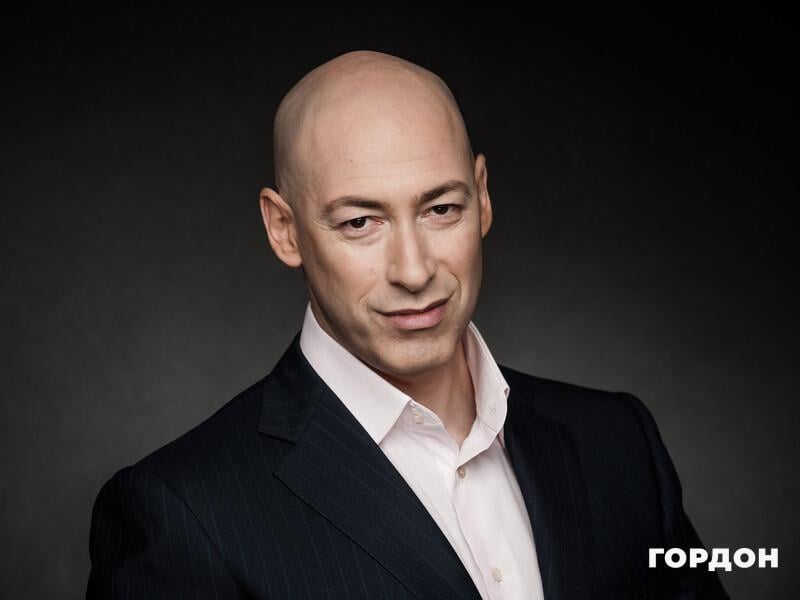The court issued a joint judgment in the case of Novaya Gazeta and Others v. Russia, in which it reviewed 161 complaints against the Russian Federation, filed by various media outlets and individual applicants, including Gordon. These complaints concerned the right to freedom of expression (in Russia, the complainants were charged with "discrediting" the Russian military and spreading "fakes" about their actions). The decision also includes complaints by Russian opposition activist Vladimir Kara-Murza, Russian journalist Michael Naki, Russian artist Aleksandra Skochilenko and others.
Gordon applied to the court in September 2022, before Russia fully withdrew from the jurisdiction of the ECHR.
The Court unanimously ruled that there had been a violation of Article 10 of the European Convention on Human Rights (which refers to freedom of expression) by Russia in the case of Gordon and the other applicants. The court concluded that there was a systemic pattern of restricting communications related to the war in Ukraine, indicating a coordinated effort to suppress dissent rather than to counter any threat to national security. "Essentially the national courts had criminalised any reporting/statements that contradicted the official narrative describing the invasion of Ukraine as a "special military operation", the court said.
The case was decided in record time: just two and a half years after Gordon filed his petition, whereas such cases usually take five to ten years to be heard.
Paragraph 121 of the judgment (detailed below) actually sets a precedent, as the court ruled that even if journalists make harsh statements about Russia and its president Vladimir Putin, these should only be considered in the context in which they were made. Ukrainian journalists, experts, and other public figures can now reference this point when appealing to courts. This means that courts must always assess the context in which harsh statements or swearing took place. They must also take into account whether prosecuting someone for these statements would violate Article 10 of the Convention.
Gordon's case was one of the few that the court considered individually. The decision described in detail the history of the persecution of the journalist by the Russian authorities. It began with a statement that Gordon made in March 2022. He said that Russia should be spoken to in the language of force, as it is the only language it understands well. "With Russia, you’ve got to speak the language of force. That’s the only language they understand well ... If [Putin] threatens the US with nukes, [the US] will drop them on him and bury him along with his fascist country ... Russians need to be beaten – not the ordinary people, but Putin’s State and those bastards who invaded our land. Take them down hard, spare no one. They bomb our theatres where women and children are sheltering. They bomb our houses and kill civilians. No pity – kill them all without mercy, get to Putin and kill him. That’s the most important job for the whole civilised world," the journalist said.
After that, the Russian Investigative Committee launched a criminal investigation against Gordon under three articles of the Criminal Code, the Russian Federation added him to the list of terrorists and extremists, issued an arrest warrant, recognized him as a "foreign agent”, and in July 2024 a military court in Moscow sentenced him in absentia to 14 years of imprisonment. The ECHR ruling emphasized that no Russian authority had served Gordon with any documents on this criminal case. The Court also noted that Gordon's inclusion on the list of "foreign agents", terrorists and extremists was probably done for "chilling effect".
The Court focused in detail on Gordon's statement and whether it could be interpreted as advocating violence against Russian servicemen and the Russian leadership (paragraph 121 of the judgment). The Court noted that, in general, states have a "wide margin of appreciation" in regulating expressions that amount to glorifying of violence, but in such cases national courts are required to scrutinize both the content of the statements and the context in which they were made. In Gordon's case, the Russian court did not assess whether such statements could directly incite unlawful acts of violence or whether they were "expressions of emotional support" for Ukraine's legitimate right to self-defense under international law. The court also recalled that these statements were made shortly after the start of Russia's full-scale invasion of Ukraine, when Russia attacked Ukrainian cities and civilians were killed.
"When viewed in their proper context, it is evident that his statements were specifically directed at Russian military personnel engaged in active combat operations and the political leadership responsible for initiating the hostilities, rather than at Russian civilians or the Russian population as a whole. His comments concerning nuclear weapons were made in direct response to nuclear threats issued by Russia’s leadership and were framed in the context of deterrence," explained in the ruling.
According to the ECHR, this undifferentiated approach by the Russian court shows that the purpose of Gordon's prosecution was not to prevent incitement to violence, but to stifle any criticism of Russian military actions.


 -6 Kyiv
-6 Kyiv


